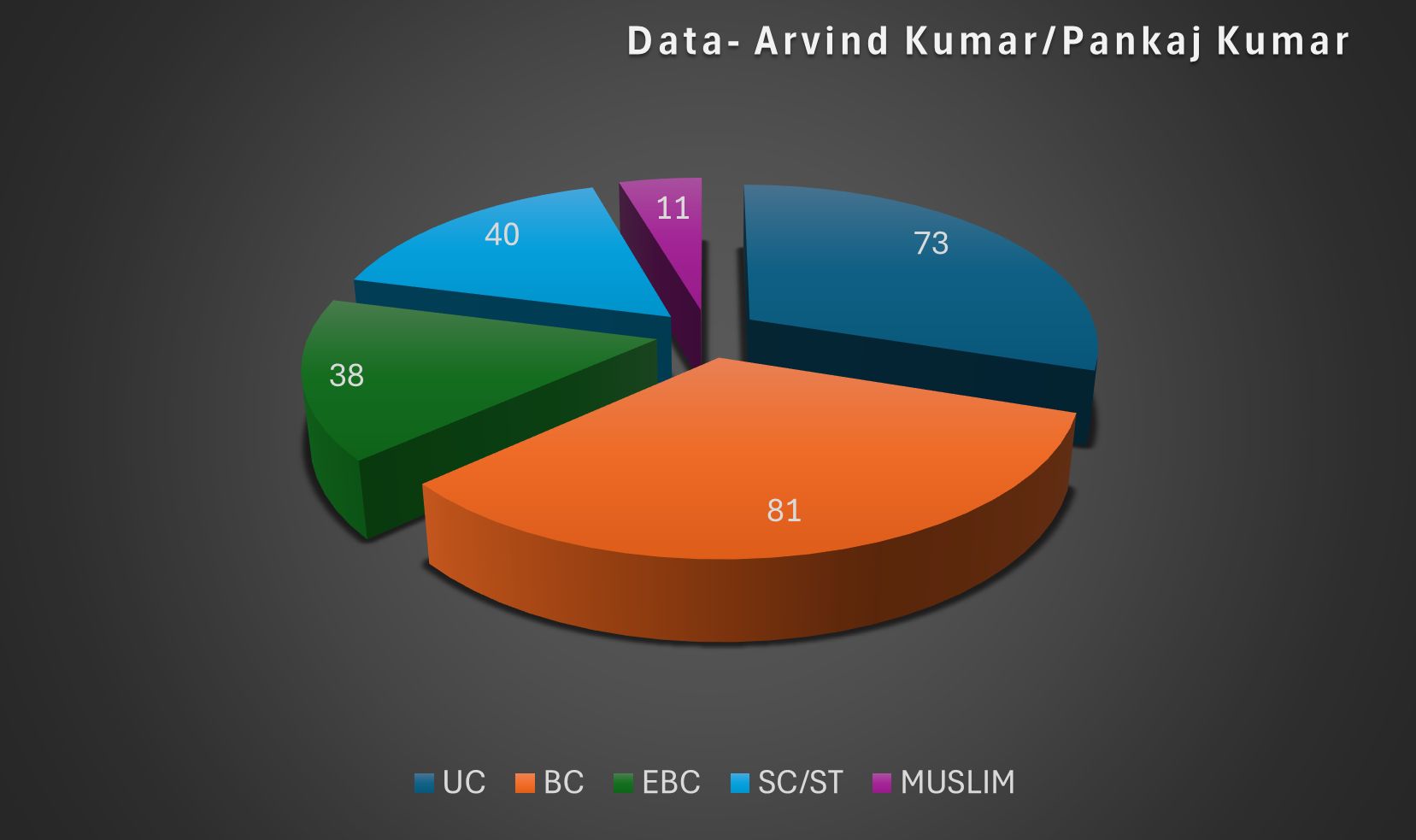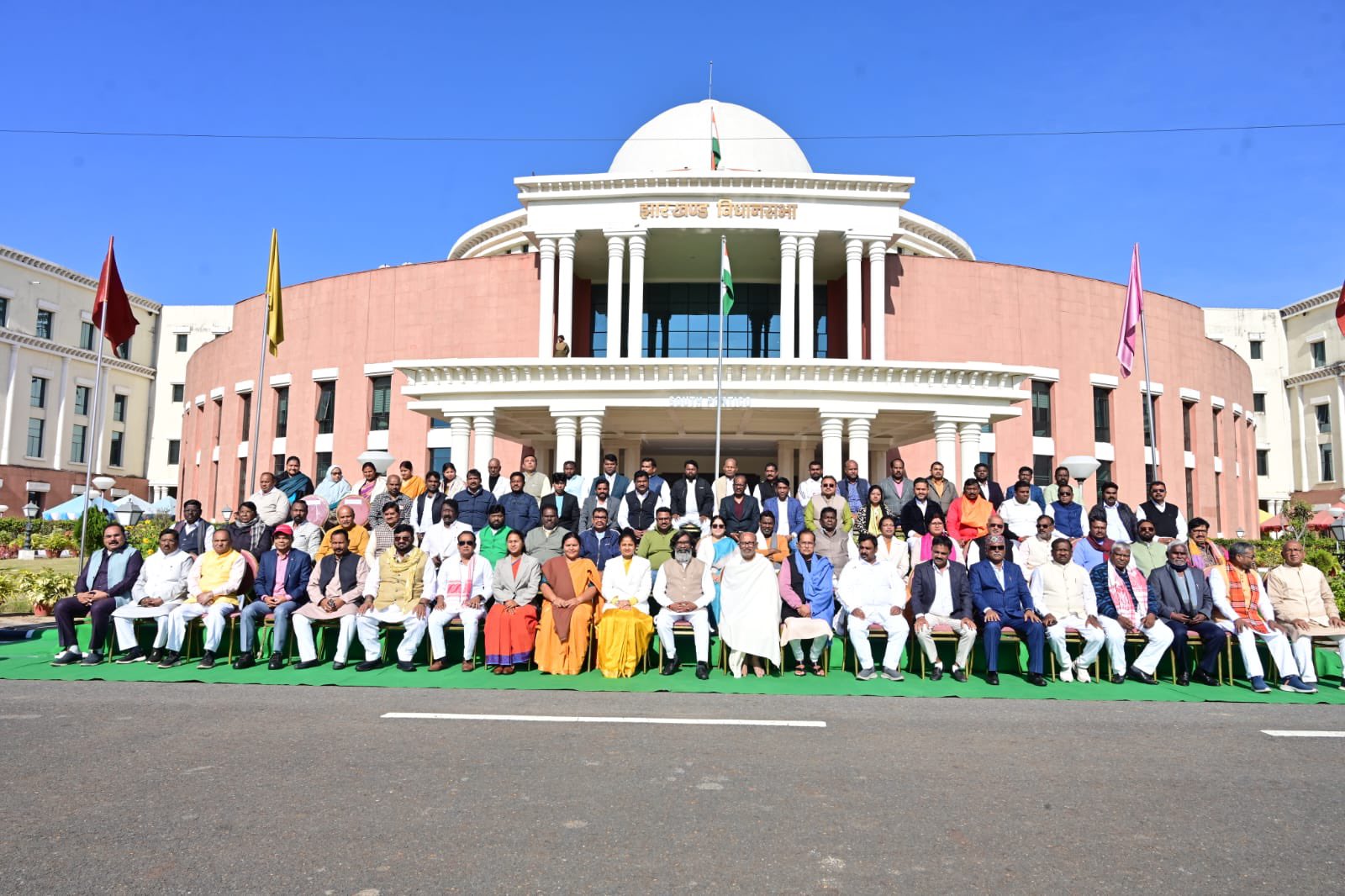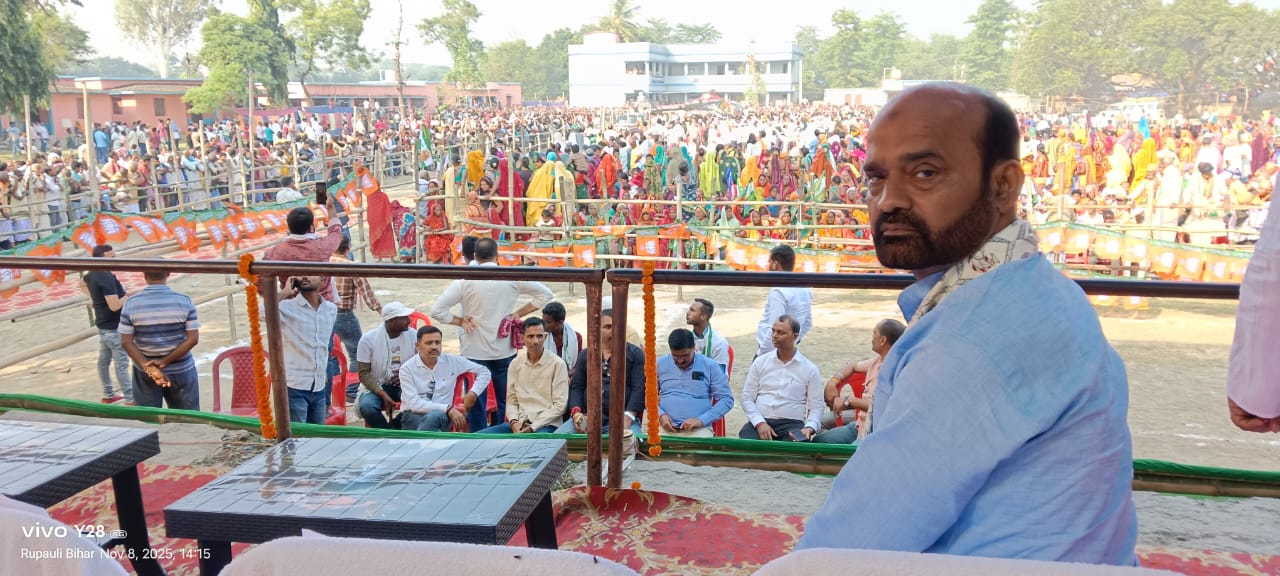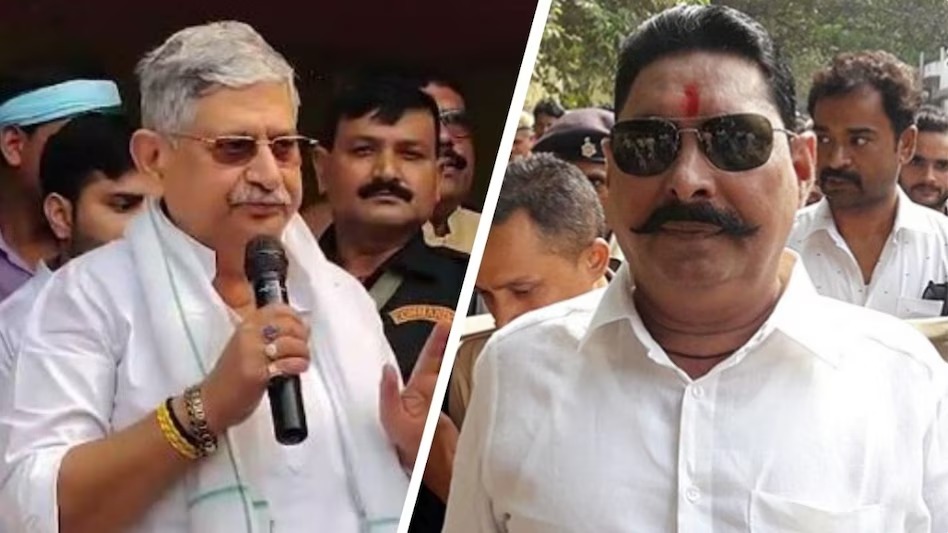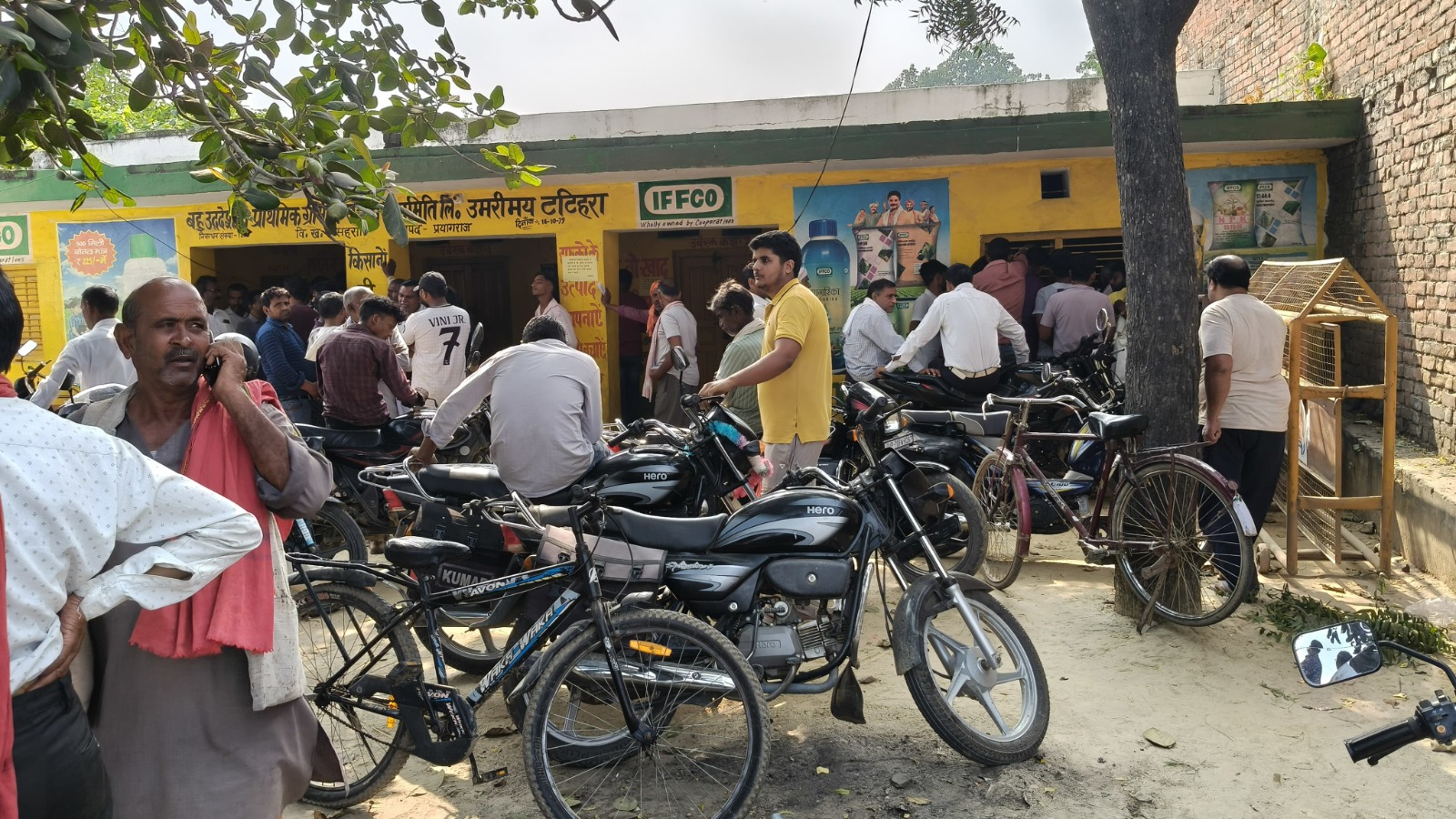Shibu Soren (11 January 1944 – 4 August 2025)
About a hundred kilometres from Ranchi on the Ramgarh-Dhanbad road is located the headquarters of the Gola block. From there, a road goes towards the Sewati hills. At the end of this road is the village of Nemra. On the way to Nemra, you pass an abandoned railway station called Badlagga. Next to it is Hedbarga – the village of moneylenders and Banias. Chandu Pahad, a high hill, overlooks the village. On a large desolate flatland in the foothills stands a cement platform. A passerby may not even find it noteworthy. But if you go closer, you will see an inscription on a cement plaque saying, “Jharkhand Kranti Sthal: Built in the memory of martyr Sobran Manjhi, father of Member of Parliament Shibu Soren. Martyrdom day: 27 November 1957.”
At the time, Shibu Soren was barely in his teens. He was studying at Gola High School. His elder brother, Rajaram, was also a student at the same school. Sobran was waylaid and murdered by assassins hired by the moneylenders of the village, while he was on his way to the school with rations for his two sons. Sobran was a schoolteacher and a Gandhian activist. He used to promote charkha (spinning wheel) in the villages around. He was deeply distressed by the exploitation of the people of his community and used to oppose drunkenness and exploitation by the moneylenders. That turned the moneylenders against him and some members of the Ghatwar caste ended up murdering him.
The impact of this incident on the family can only be imagined. The family had five-six children, including Shibu. The breadwinner was dead. The moneylenders usurped some of the family’s land and Shibu’s relatives grabbed the rest. But Sobran’s wife and Shibu’s mother, Sonmani, was a gutsy woman. For years, her two elder sons Shibu and Rajaram in tow, she travelled to the Hazaribagh Court to ensure that her husband’s killers were punished. But one day, disappointed by the attitude of the court and the lawyers, she resolved that after growing up her children would seek retribution for their father’s murder.
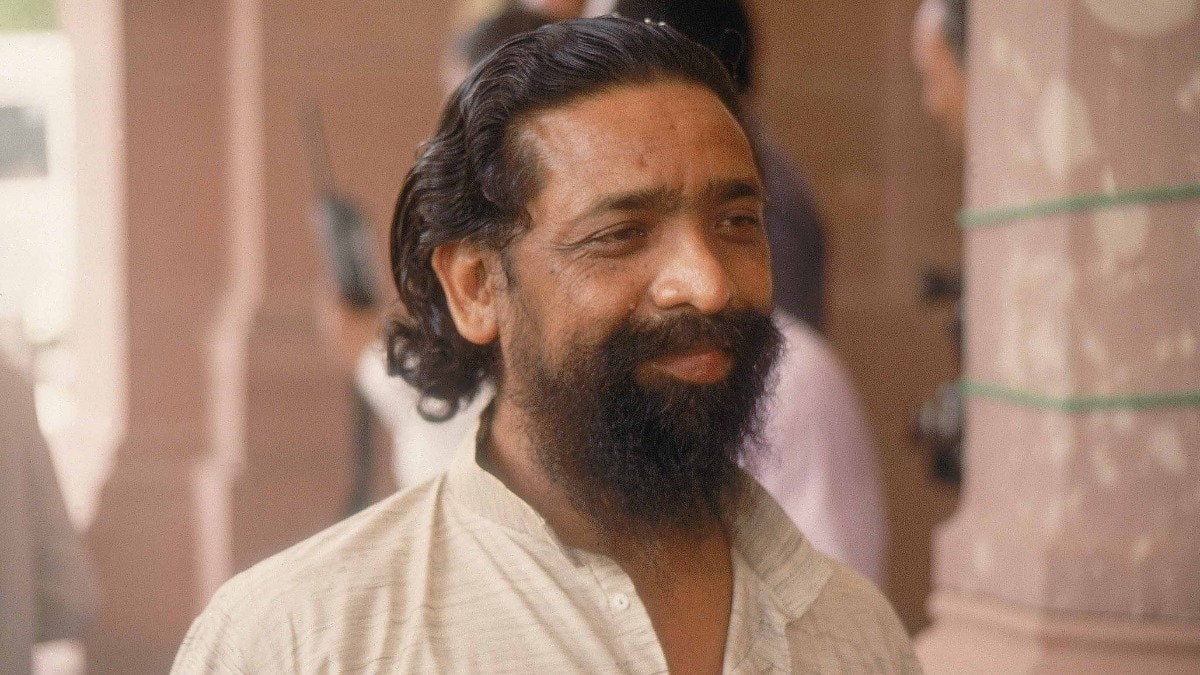
Those were very difficult days for the family. Rajaram and Shibu had to drop out from school as each member of the family needed to work to put food on the table. Shibu used to go to the forests to collect wood. After a couple of years, they started carting wood along the hill trails to saw mills in Jhalda and Moree. But they had not forgotten the gruesome murder of their father. They clashed with forest department officials. They realized that while these officials, in cahoots with the timber mafia, were busy decimating forests, they mistreated villagers who entered the forests to collect wood for their basic needs. Shibu and his associates took on the forest officials.
In that period, he clashed with a bhagat (priest) of Khairachaatar. The bhagat secured a contract for drilling a tubewell in the village. The tubewell never materialized. But he, in cahoots with the staffers of the block headquarters office, withdrew the money meant for the tubewell from the bank. A few years later, bank officials visited the village seeking repayment of the loan. Shibu went to the block office with some of his friends to enquire about the matter only to be humiliated by a peon. One day, along with his friends, he abducted the bhagat from the Khairachaatar market and took him to the Bhasmi forest. They only released the bhagat after a compromise was reached with the block officials. Shibu became famous as a young rebel in the area.
At the time, he was not driven by any ideology. Nor did he have a well-thought-out plan. He happened to meet some Communist leaders. The key figure among them was Manzoor Hasan of Chitarpur. He came from a zamindar family but after returning from Aligarh University, where he studied, he turned a Communist and revolted against his father. He was even elected as an MLA. But the mafia murdered him at the Vidhayak Club in Patna before he could be sworn in. It is difficult to say whether Shibu had begun to grasp the concepts of dialectical materialism and class struggle in his company. But his association with Manzoor Hasan definitely turned him into a warrior for building a society free of exploitation. He resolved to struggle relentlessly for achieving his objective.
Those were tumultuous days. A steel plant was coming up in Bokaro. The construction of the plant began in Marafari area near Jainamod. In the first phase, the land was to be levelled. A meeting was convened to craft the strategy for opposing the project. One of the special invitees was Shibu Soren, who had earned fame as the son of Sobran Manjhi and as a radical, militant young man. With a dugdugi (traditional drum) playing in the background, it was resolved to launch a fight to the finish for saving the land of the Adivasis and protecting the honour of their women. A new organization Santhal Sudhar Samiti came into being, which was later renamed Adivasi Sudhar Samiti. The land on which the public meeting was being held in Bokaro belonged to Bhavesh Manjhi but had been grabbed by moneylenders. Shibu Soren declared from the dais, “From this day, from this moment, this land is free from the moneylender’s possession … from today, the office of Santhal Sudhar Samiti will operate from here.”
The new comrades then drew up a complete list of the pieces of land that had been usurped by the moneylenders. One by one, they began harvesting the crops growing on these lands. There was no confrontation but the police did register cases under Sections 379, 144 and 145. In most of the cases, Shibu Soren was the chief accused.
It was during those days of an unending struggle that Mohan Manjhi of Banchas took Shibu Soren to Dhanbad to meet Vinod Bihari Mahto – a lawyer who used to file cases on behalf of victims of displacement. He needed a young man who would be a witness in such cases and would not give in during cross-examination by the defence. But he never imagined that Mohan Manjhi would bring to him a young man with strong arms, bright eyes, shoulder-length hair and a broad forehead. He had heard about Shibu, his Adivasi Sudhar Samiti and his “Dhankatni” (paddy-harvesting) movement. He welcomed Shibu with a broad smile. “Will you join us? Just like your Adivasi Sudhar Samiti, I have forged an organization called Shivaji Samaj here? We can do a lot if we work together,” Mahto told Shibu.
Another politician who helped Shibu Soren become a people’s hero was Comrade A.K. Rai. Initially, he was suspicious of Shibu’s intent, given the growing proximity of the likes of him and Jaipal Singh to the Congress. However, impressed by the work Shibu Soren did in Tundi, he pronounced that Shibu was a great hero of the Adivasi.
Rai writes in his book “Jharkhand and Lalkhand”, “Bagun Sumbrayi, N.E. Horo and Shibu Soren represent three different streams of the Adivasi movement. Sumbrayi symbolizes feudalism that would push Jharkhand back in time. Horo symbolizes capitalism and just looks at the present. Shibu Soren is a symbol of Adivasi socialism, which implies a good future for the entire society. Shibu has the potential of becoming the red star on India’s horizon. His green flag will birth a new India.”
Vinod Bihari Mahto felt that Shibu Soren would be a big influence in the Adivasi-dominated areas, so he asked him to work in the Tundi block. Shibu went to Tundi and made the Pokhadia Ashram there the epicentre of his movement. From there, he led the “Dhankatni” movement against the exploitation by the moneylenders and the rest, as they say, is history. That movement turned Shibu Soren into a great hero of the Adivasis – Dishom Guru.
Dishom Guru is no more. But the stories of his exploits will never die in Jharkhand.
Goodbye Dishom Guru!
(Translated from the original Hindi by Amrish Herdenia)
Forward Press also publishes books on Bahujan issues. Forward Press Books sheds light on the widespread problems as well as the finer aspects of Bahujan (Dalit, OBC, Adivasi, Nomadic, Pasmanda) society, culture, literature and politics. Contact us for a list of FP Books’ titles and to order. Mobile: +917827427311, Email: info@forwardmagazine.in)

